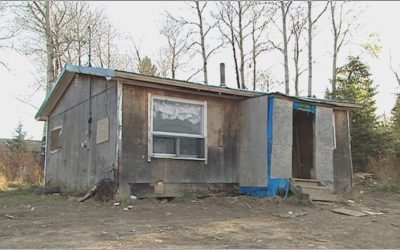When the B.C. Liberals entered office five years ago, they had one grand idea: Chop personal income taxes by 25 per cent.
After a decade of mostly raised taxes by New Democrats — with deathbed conversion cuts near the end of their rule — a reduction in the personal tax burden was overdue.
So too was (and is) governance reform, including that unwieldy Greater Vancouver transportation beast: TransLink. The non-elected behemoth now has a budget larger than most cities in the Lower Mainland. With budgeted operating and capital expenses of $846 million in 2006, TransLink has a bigger budget than every local entity save Vancouver.
Despite the recent revenue slosh, TransLink wants more money to fund infrastructure, and correctly predicts massive shortfalls without it. But those plans should not, in the public mind, be separated from the money local taxpayers pay out elsewhere.
The 2001-02 tax cuts were a necessary shot in the arm. They made B.C. more competitive and were deserved. But if that tax relief is merely chewed up by ever-higher property taxes in the GVRD, the pain will merely have shifted from the provincial pocket to the municipal one. Just as bad,
B.C.’s economic gridlock in the 1990s will be repeated locally and added to the existing gridlock in transportation.
One possible escape route is for local councils to buck up and transfer some of their own cash to TransLink. The 22 GVRD jurisdictions will, collectively, spend about $2.5 billion from their operating budgets this year. (That doesn’t include debt interest or capital expenses.)
A transfer of five per cent would add $125 million annually to TransLink coffers. And that’s just from the civic operating budgets. Additional money might be found in delayed, cancelled or streamlined local capital projects.
True, that would put pressure on cities to reform their budgets, but that’s rather the point. B.C. families saw a four-per-cent reduction in their real, after-tax income in the 1990s and only a four-per-cent rise since 2001.
Given that families are back to where they started 15 years ago, it’s a bit rich of governments — or their stepchild, TransLink — to eat away at that stagnated income in the form of tax increases.
If required, most people could chop five per cent from their annual “operating” spending budgets. GVRD’s cities could get there if they bargained tougher with city unions and engaged in more competitive bidding for day-to-day civic operations, and rallied the public to such an end on the justification that the Lower Mainland needs more money spent on efficient transportation, not on city hall’s unions.
Instead, most cities still lock themselves into one provider, the local public sector union, for too many services. Unsurprisingly, the result, according to the Canadian Federation for Independent Business, is municipal wages and benefits 14.2 per cent higher than at comparable private jobs.
The blue-collar guy gets paid less so his equivalent over in city hall can be paid more. In addition to that problem, the higher government wage bill across the GVRD means bridges, buses, SkyTrain expansions and expanded roads that could have been bought and paid for by now have been delayed.
The GVRD’s cities can create room by bringing operating budgets into line with private sector costs. But it will take time and it assumes municipal politicians would properly design more competitive contracting and find the nerve to stand up to government unions. It’s possible, but it will take some tough bargaining and political courage.
Other options include begging for more money from the province. But Victoria has handed over increasing amounts of fuel tax revenue to TransLink for years. The Liberals could fork over more gas cash but it’s not clear what’s in it for them; if anything, such an increased transfer lets local cities off the hook for the needed spending reforms noted above.
TransLink’s own documents forecast higher fares, upped parking levies and new road taxes if higher levels of government don’t fork over more money.
And count on significantly higher property taxes. In that scenario, unreformed city spending habits will lead to a situation now faced by a jurisdiction on the other side of the continent.
New Jersey, the garden state, was once a refuge for businesses and homeowners fleeing then high-tax New York City. In the latest issue of Manhattan’s City Journal, in an article entitled The Mob That Whacked New Jersey, author Steve Malanga notes that for a century and a half Jersey served as the “getaway” state for immigrants, middle-income earners and businesses who wanted out of crowded, high-tax, high-crime New York.
But that was then. The Jersey decline began 40 years ago; today, writes Malanga, “Jersey is a cautionary example of how to cripple a thriving state. Increasingly muscular public-sector unions have won billions in outlandish benefits and wages from compliant officeholders.”
He notes that, to pay for above-market wage bills, “the state has relentlessly raised taxes on both residents and businesses, while localities have jacked up property taxes furiously.”
The result is crumbling infrastructure (the money went to the public sector) business stagnation, and multiple increases in multiple taxes including property tax hikes. In the example of one home he cites, property taxes jumped by 50 per cent in 10 years, from an already high $5,000 to almost $7,500.
Want a vision of Greater Vancouver’s future? That’s it, unless GVRD’s cities and TransLink learn how to live with the parameters of household incomes.
Mark Milke is author of the newly released A Nation of Serfs?
mmilke@telus.net


